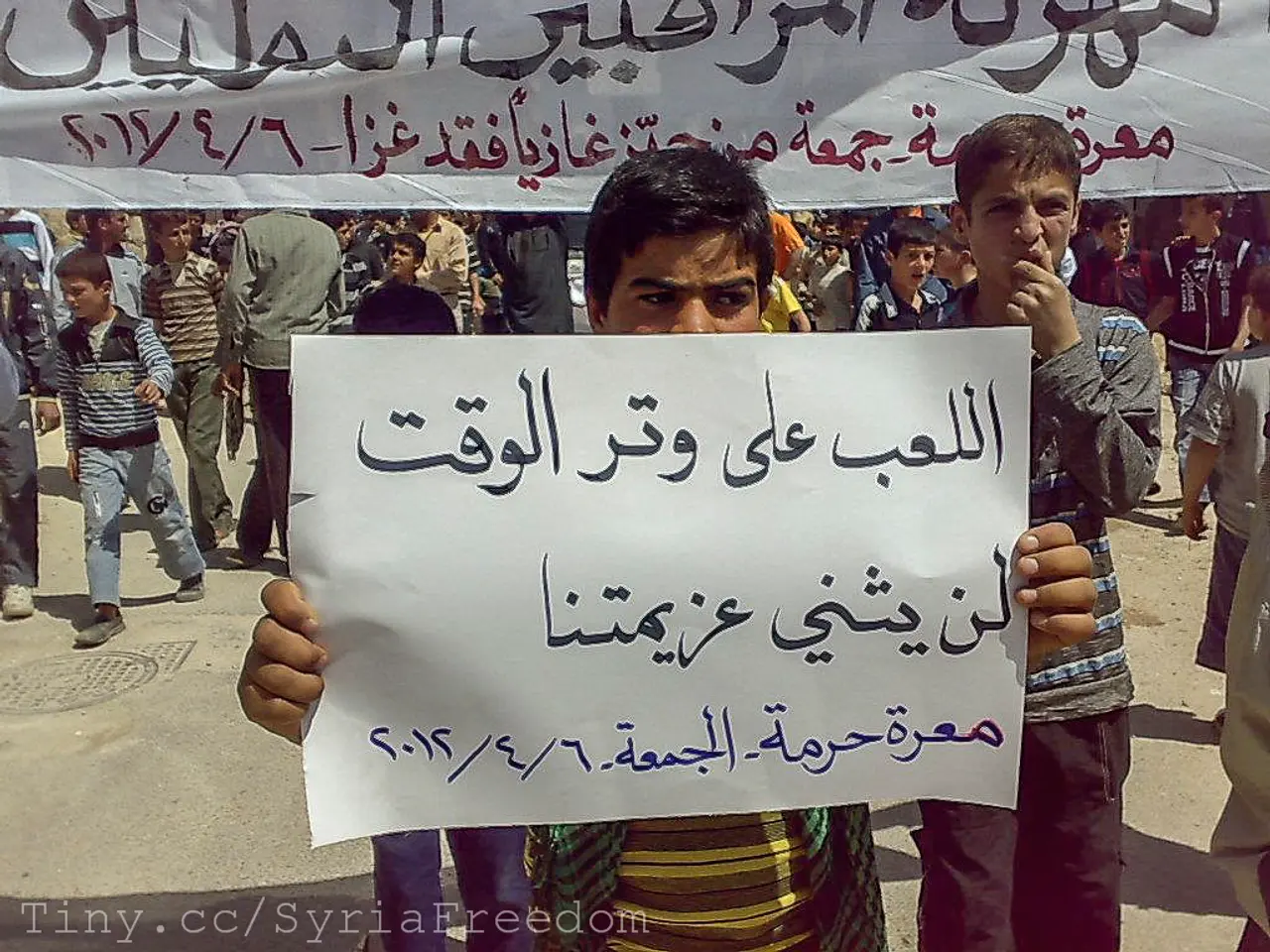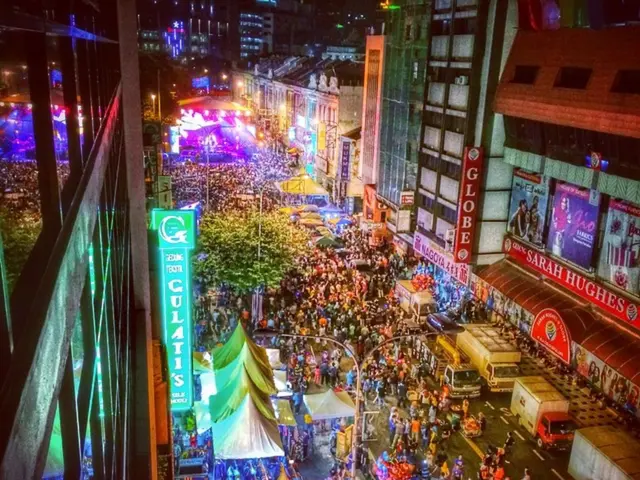Evaluation initial: Scarce instances of aggression towards refugees
In the first half of 2025, there has been a notable decrease in documented crimes against asylum seekers and refugees outside of refugee accommodations compared to the same period in 2024. However, this decrease does not signify a resolution of the complex issue surrounding unreported crimes against these vulnerable groups.
Societal Tension and Bias
Germany has faced challenges related to Islamophobia and anti-refugee sentiments, which can lead to unreported crimes due to fear of retaliation or mistrust in authorities. Refugees often face difficulties in navigating the legal system, which can discourage them from reporting crimes. Integration issues, such as language barriers and cultural differences, can isolate refugees and make them more vulnerable to unreported crimes.
Trends
Despite societal tensions, there has been a reported decrease in crimes targeting asylum-seekers and refugees outside specific areas in the first half of 2025. However, there has been a significant rise in anti-Muslim hate crimes, which can indirectly affect asylum seekers from Muslim-majority countries. The influx of over 1.2 million Ukrainian refugees has shifted focus and resources, potentially affecting the attention and support for other refugee groups.
Implications
Unreported crimes undermine the protection of human rights for asylum seekers and refugees, leaving them vulnerable to abuse. The lack of safety and trust in authorities can hinder social integration efforts, exacerbating segregation and marginalization. There is a need for policy reforms to address reporting barriers and ensure safety and justice for all refugees, regardless of their nationality.
Recent Developments
During the Bundestag election campaign 2025 and after the swearing-in of the new black-red federal government, the ordered repatriations of asylum seekers at the German land borders were particularly in focus. The gradually introduced stationary controls at all German land borders, measures taken by Balkan countries to reduce irregular migration, and the changed situation in Syria, where long-time ruler Bashar al-Assad was overthrown in December, are likely to have contributed to this development.
In February 2024, a law of the traffic light government came into force, which expanded the possibilities for detention and deportation. The Federal Office for Migration and Refugees (Bamf) reported that 61,336 people filed a first application for protection in Germany in the first half of the current year, which is almost 50 percent less than in the corresponding period last year.
Controversial Discussions and Demonstrations
Asylum issues were controversially discussed in the German Bundestag in the first half of 2024 and again in the first half of 2025. Two of these demonstrations were reportedly organized by the AfD, a party currently being monitored by the Federal Office for the Protection of the Constitution as a suspected case of right-wing extremism. Fewer participants were reported at three demonstrations organized by neo-Nazi groups in North Rhine-Westphalia and Magdeburg.
In conclusion, while there may be a decrease in reported crimes against asylum seekers in certain areas, broader societal issues and unreported crimes remain significant concerns. Addressing these requires comprehensive policy and social support measures. Clara Bünger, interior policy expert of the Left Party, believes that the decrease in crimes against asylum seekers and refugees is no reason to let down our guard. Racist harassment, threats, and physical attacks are still part of the daily life of people seeking protection in Germany.
- The decrease in documented crimes against asylum seekers and refugees in specific areas, as observed in the first half of 2025, contrasts with the ongoing societal concerns and the prevalence of unreported crimes, such as those rooted in Islamophobia and anti-refugee sentiments, that are often linked to politics, general-news, and crime-and-justice issues.
- The ongoing focus on controversial discussions and demonstrations, often led by parties suspected of right-wing extremism, underscores the need for continued attention to the complex issue of crime against asylum seekers and refugees, falling under the domains of politics, general-news, and crime-and-justice.





